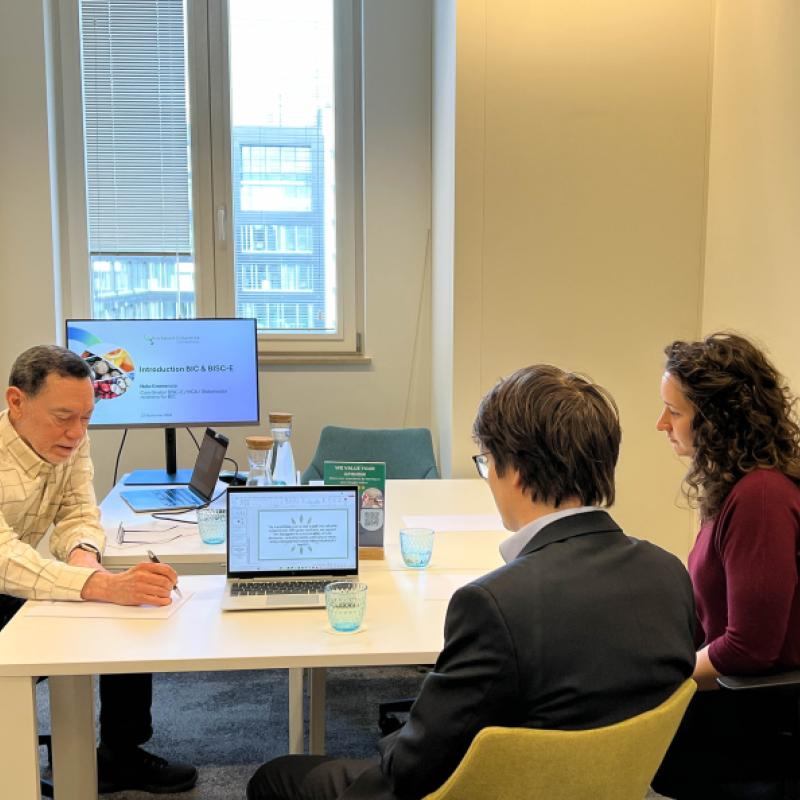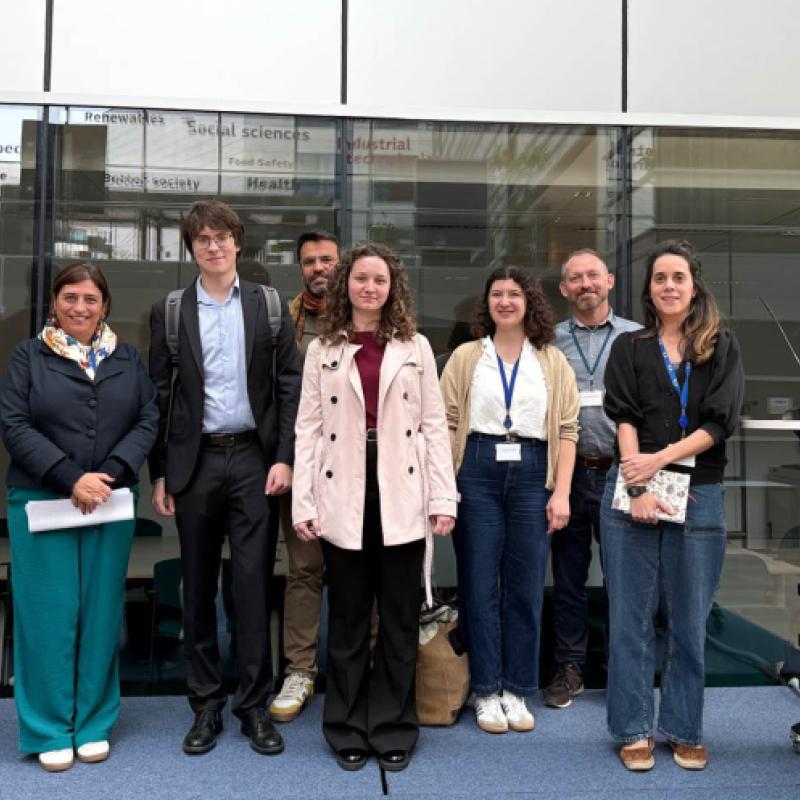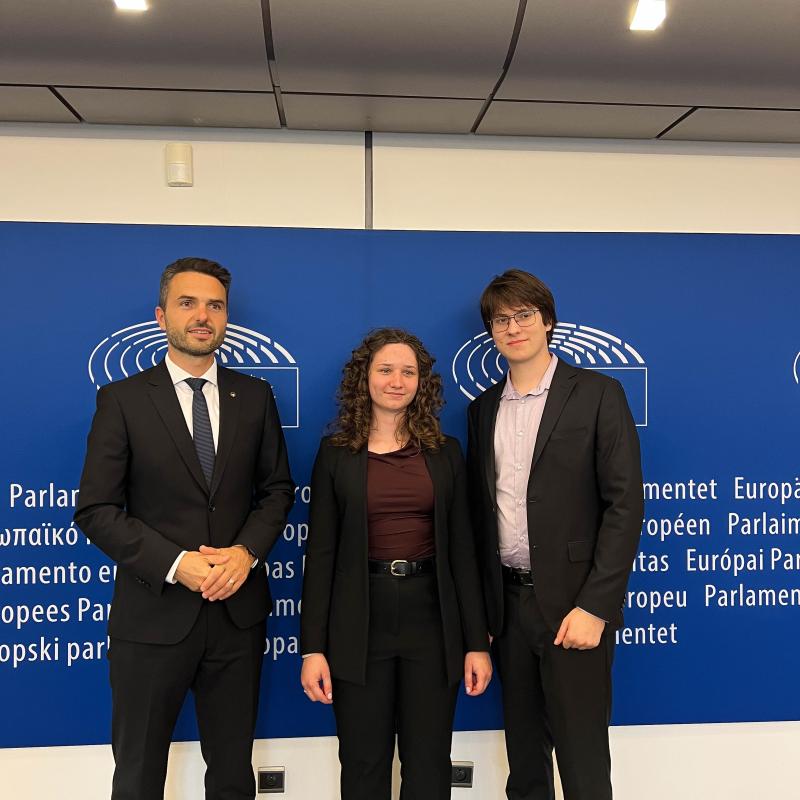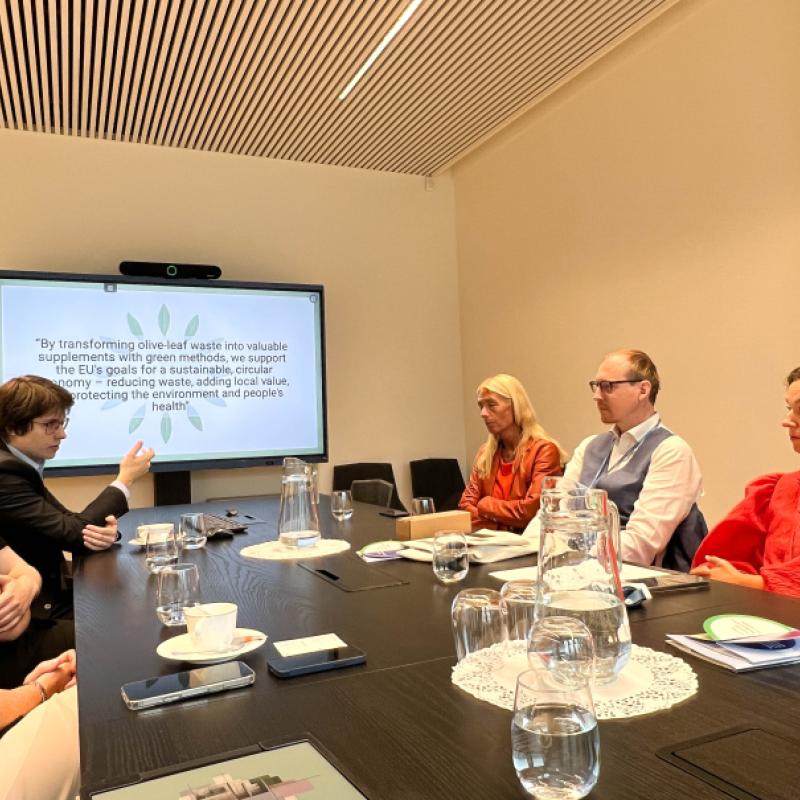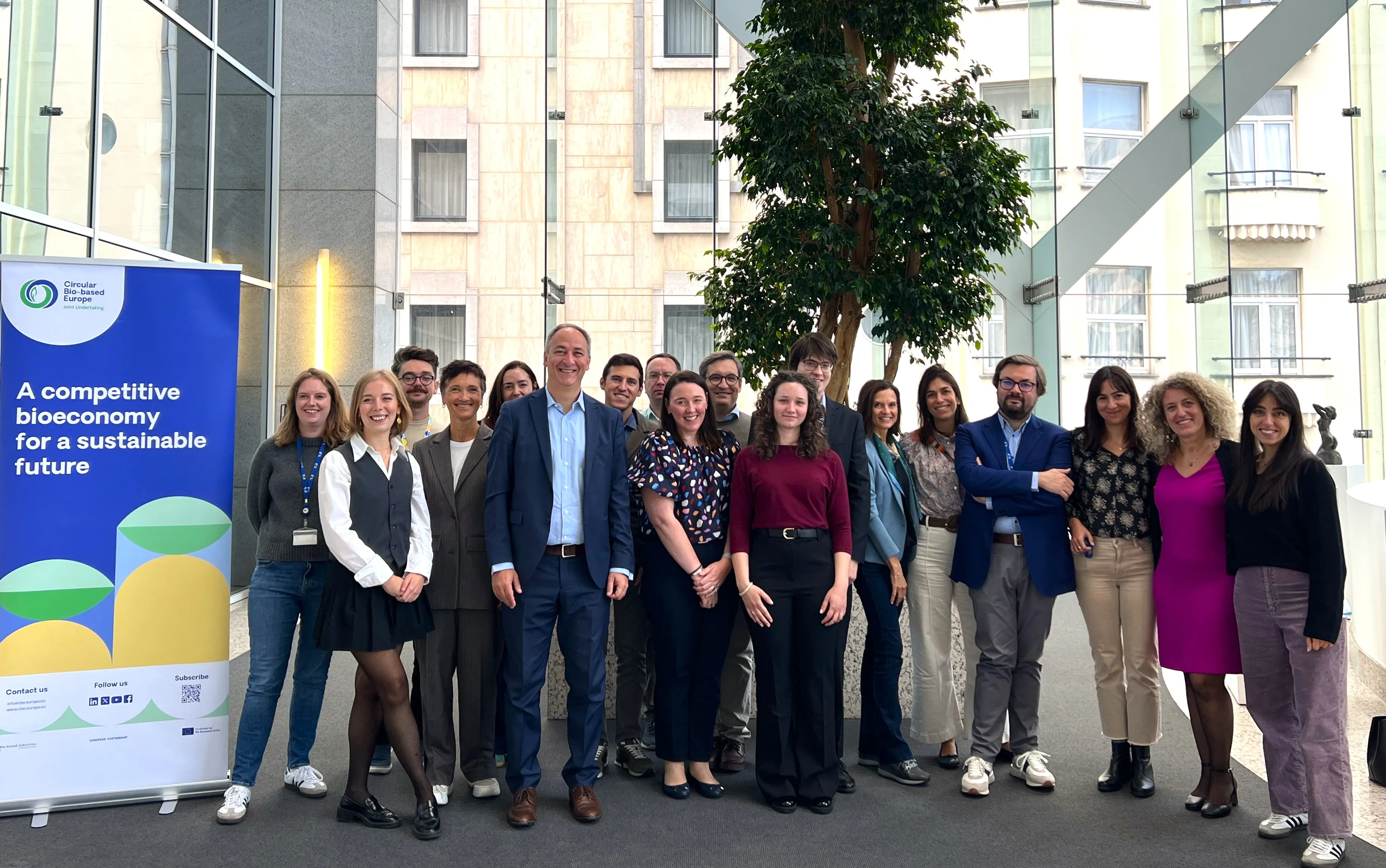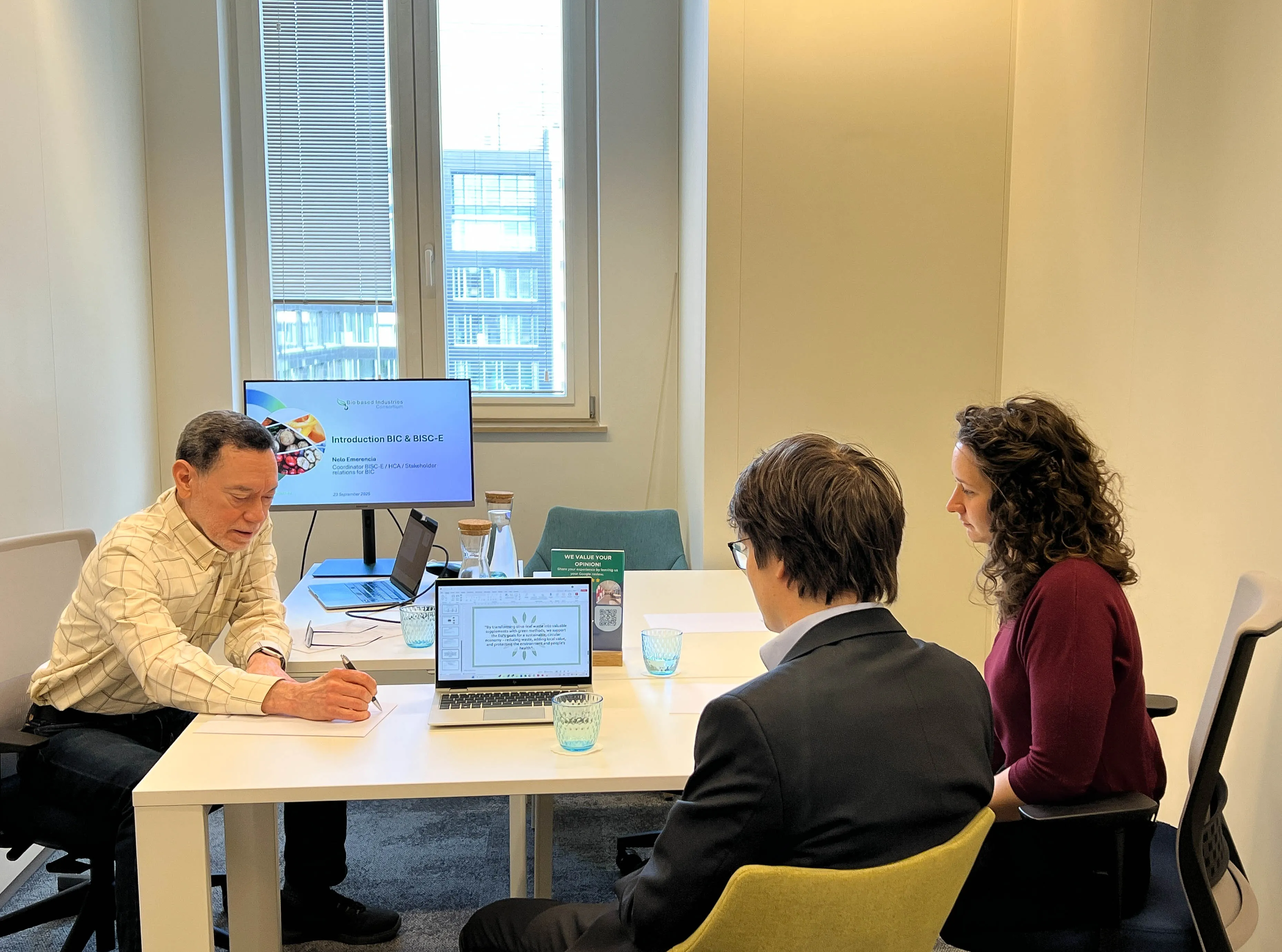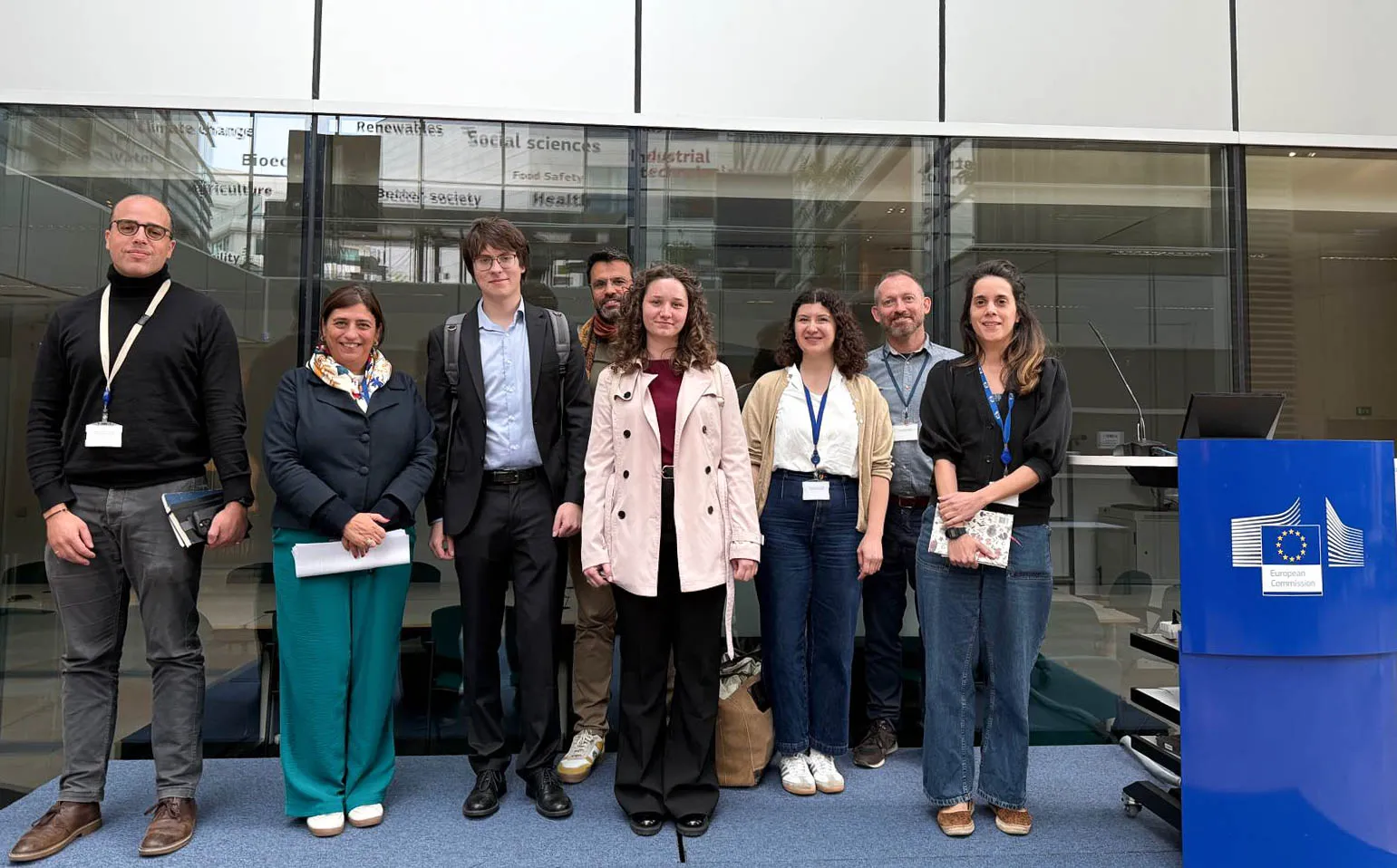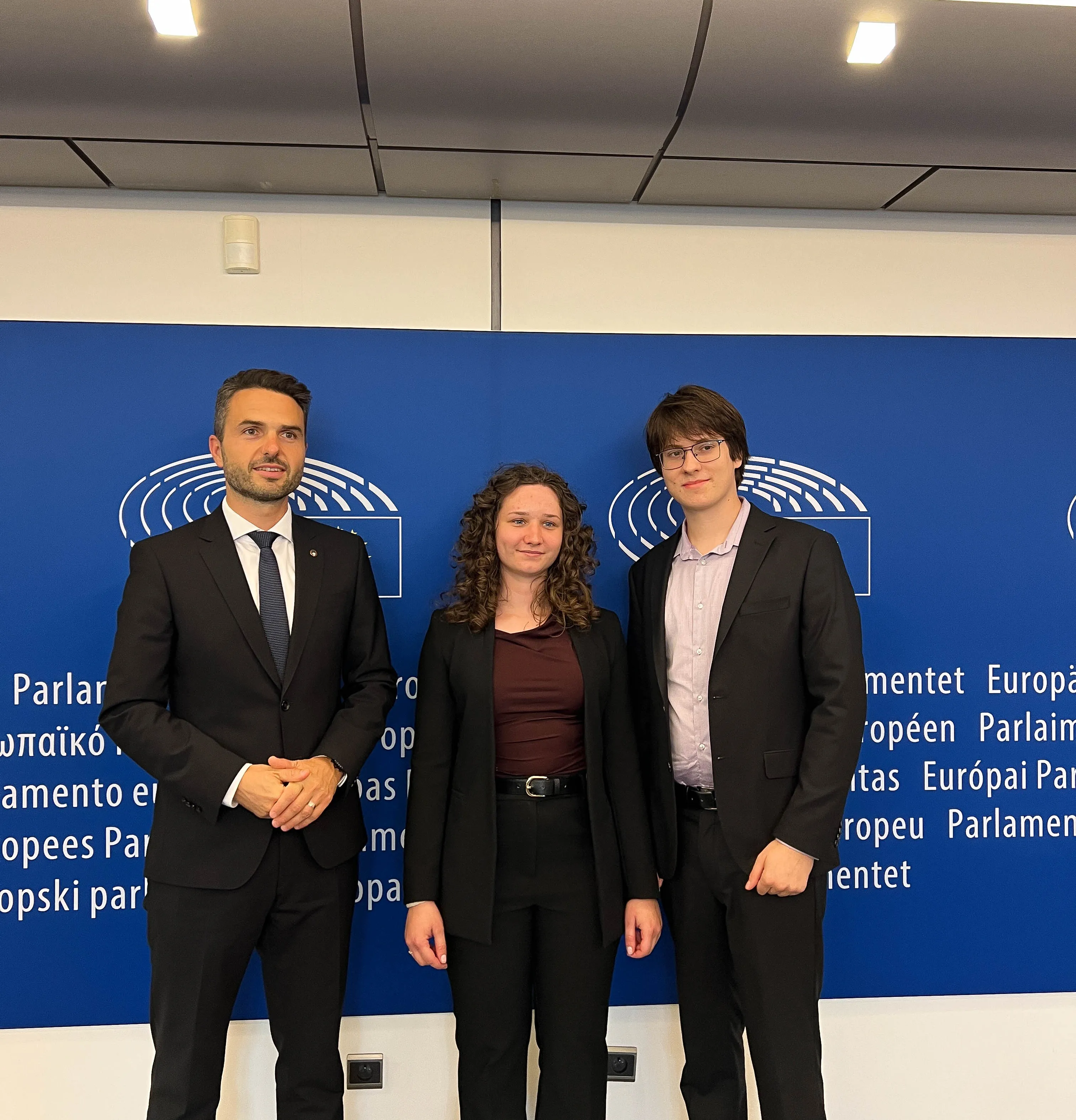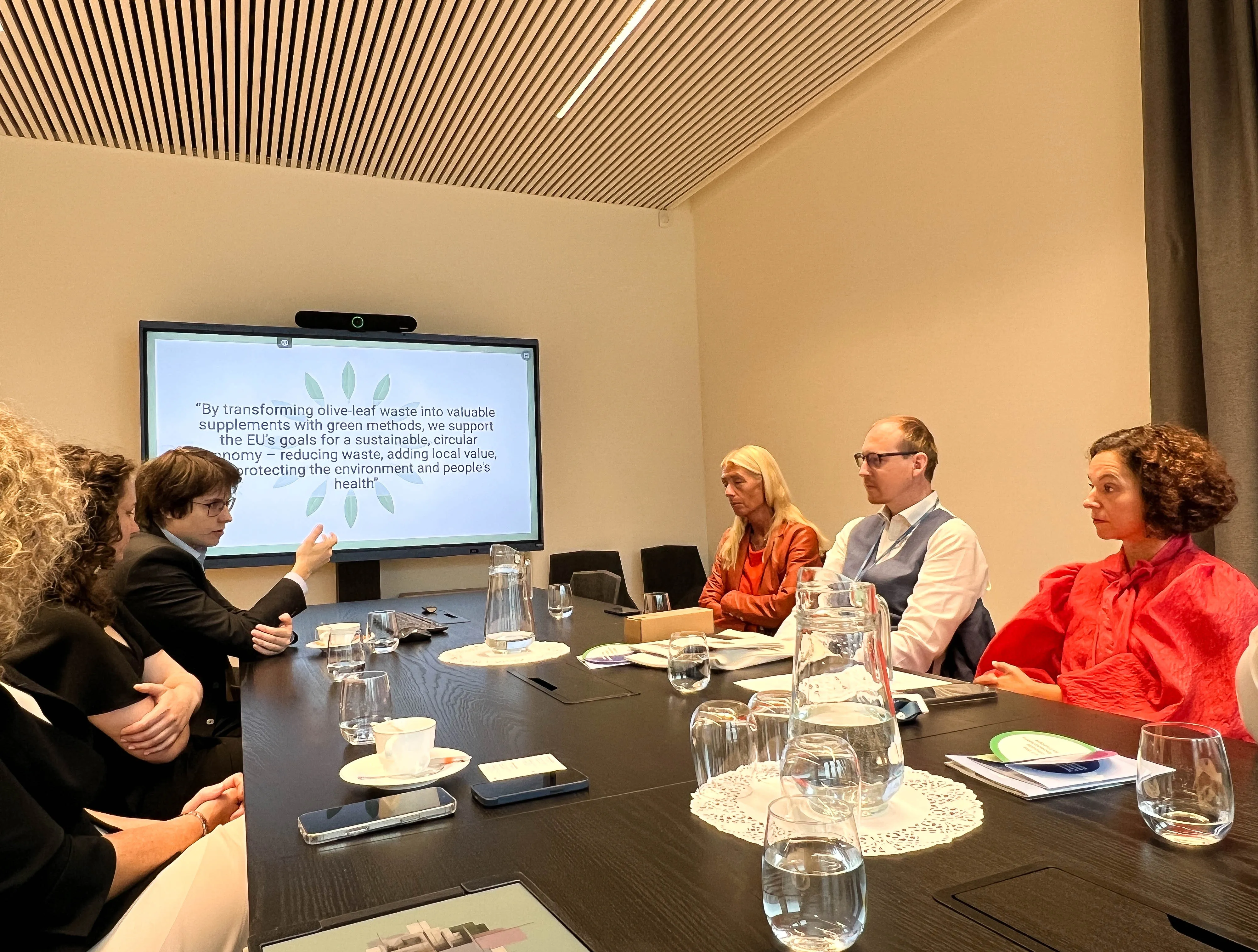Winners of the EUCYS 2024 bioeconomy prize, Slovenian medical students Jaša Krevh and Julija Skrt travelled to Brussels to present their research on a green and low-cost method to extract antioxidants from olive leaves. Their visit was organised by CBE JU, which sponsors the prize as part of its commitment to fostering new talent in the circular bio-based sector.
During their visit, the young researchers discussed their project with CBE JU’s programme office team and provided detailed answers to the scientific questions raised by the project officers. CBE JU Executive Director welcomed the researchers in Brussels and praised their innovative approach:
The EUCYS bioeconomy prize offers a bridge between young scientific talent and Europe’s policy framework. By giving researchers like Jaša and Julija the opportunity to present their work in Brussels, we ensure that the next generation of innovators can contribute directly to shaping the future of the circular bio-based economy. Their project demonstrates how innovative thinking at an early stage can provide practical, sustainable and cost-effective solutions.
Nicoló Giacomuzzi-Moore
After a quick tour of the Brussels’ European district, Nelo Emerencia, who leads the BISC-E programme at the Bio-based Industries Consortium (BIC), invited the students to consider the industry point of view and highlighted just how crucial entrepreneurship is for driving innovation. At the end of their first day, Jaša and Julija met with representatives from the European Commission’s Directorates-General for Research & Innovation (DG RTD), Agriculture and Rural Development (DG AGRI) and Internal Market, Industry, Entrepreneurship and SME’s (DG GROW). As part of their programme, they visited the offices of Slovenian MEP Matej Tonin from the European Parliament’s Committee on Industry, Research and Energy (ITRE) and enjoyed a guided tour of the European Parliament building. To wrap up their time in Brussels, the winners also exchanged with Andreja Viher White, ambassador at the Permanent Representation of Slovenia to the EU, and Sergej Možina and Gregor Švajger, counsellors for science and research, who praised their initiative and encouraged them to continue exploring innovations that can strengthen Slovenia’s role in the European bioeconomy.
We met stakeholders and policymakers from diverse backgrounds, which made presenting to them an interesting experience. Each was focused on different aspects of our research, so we had very different questions and discussions. We learned a great deal about sustainable industry and discovered the opportunities that the EU and its public and private partners provide.
Jaša Krevh
For Jaša and Julija, the experience was not only a chance to present their research but also an opportunity to see first-hand how science connects with policy and its implementation via projects. They highlighted the value of engaging directly with EU institutions, noting that their time in Brussels gave them a clearer understanding of the impact that research and innovation can have beyond the laboratory. Discussions explored how early-stage scientific research can contribute to EU policy priorities such as the EU Bioeconomy Strategy, and the effort to turn agricultural by-products into high-value applications.
We were happy to see that the policy of the EU is also shaped by scientists, who believe in a fact-based research to combat climate change and keep the world a beautiful place for us and the generations that will come after.
Julija Skrt
Unlocking olive leaf potential
After winning Slovenia’s national competition, the young researchers went on to represent their country at the European Union Contest for Young Scientists (EUCYS) in Katowice, Poland, last September, where they were awarded the bioeconomy prize for their innovative work.
It was surprising to win the prize. It felt a bit surreal because there were so many strong projects that year, all of which deserved recognition. We’re very glad that the experts appreciated our work, and we’re grateful for the chance to visit Brussels and learn more about what CBE JU does.
Jaša Krevh and Julija Skrt
Their research explored unused olive leaves as a low-cost source of phenolic compounds, focusing on developing an eco-friendly, enzyme-based extraction method using water as a solvent. Results demonstrated that the application of hydrolytic enzymes resulted in a reduction of both antioxidant activity and total phenolic content; however, these decreases were not statistically significant and were independent of leaf type, age, or harvest time. The technique, tested under simulated digestion, offers new potential for health, food and supplement applications and reflects the kind of research that aligns closely with CBE JU’s mission to foster sustainable innovation and accelerate Europe’s shift towards a bio-based economy.
The idea for the research was developed based on the context of olive oil production in Slovenia. Although Slovenia is a relatively small producer, olive oil is an important sector, and considerable research already exists on olive oil itself. However, when we started this project in 2020, there was comparatively little research focused on olive leaves, especially regarding their use in supplements. Hopefully, our research could have an impact on the production of food supplements from unprocessed olive leaves and maybe inspire other scientists to research the bioavailability of olive leaves components in our digestive system.
Jaša Krevh and Julija Skrt
By creating opportunities for young scientists like Jaša and Julija, EUCYS contributes to Europe’s leadership in bio-based innovation.
What is EUCYS?
The European Union Contest for Young Scientists (EUCYS) is an annual event organised by the European Commission to promote scientific excellence among Europe’s youth. It provides a platform for students to compete with their peers at a European level, showcasing their innovative projects. Since 2016, CBE JU has supported the contest by sponsoring the bioeconomy prize, which rewards projects that use biological raw materials in sustainable, renewable, and innovative ways while fostering scientific research and environmental awareness. The prize includes a visit to the CBE JU Programme Office and EU institutions in Brussels, alongside with meeting important bioeconomy stakeholders.
The 2026 EUCYS edition will take place on 22-27 September in Kiel, Germany.
